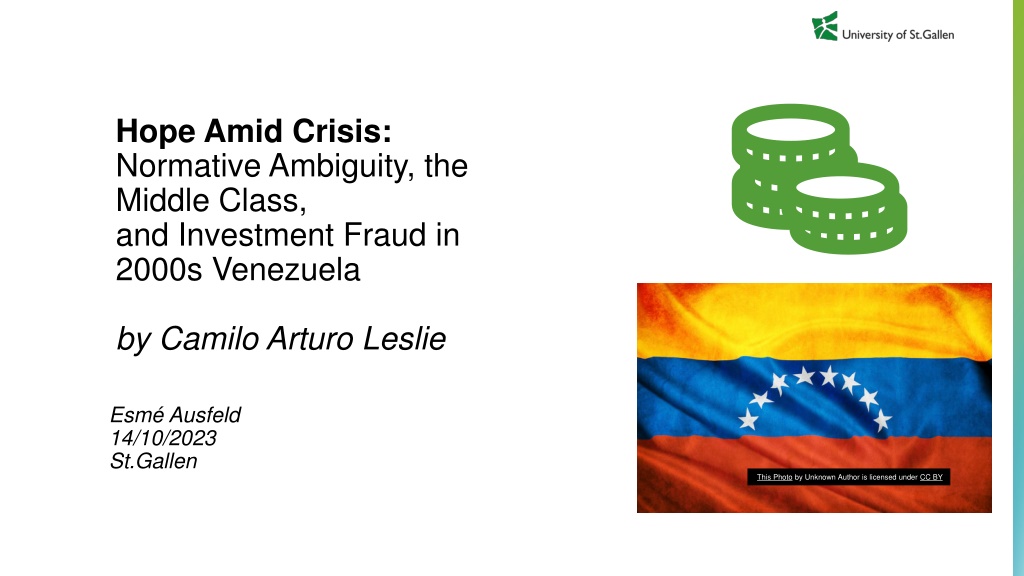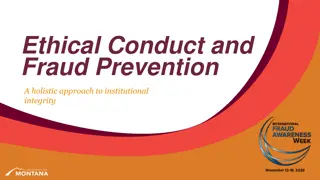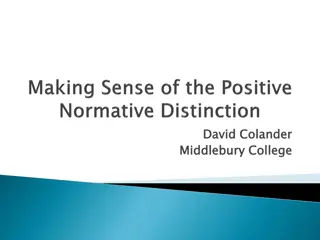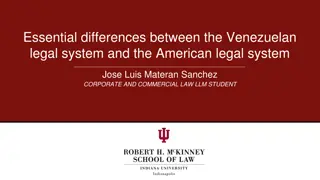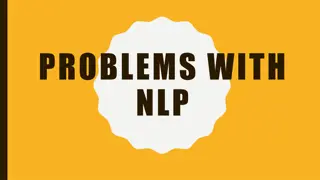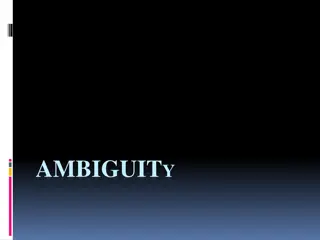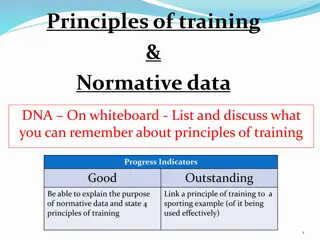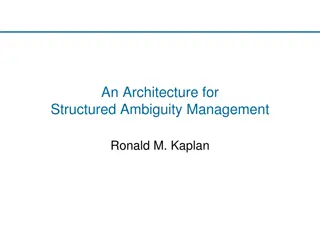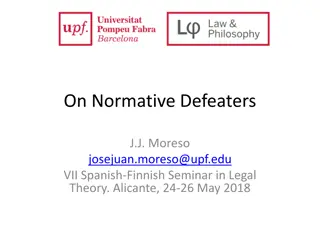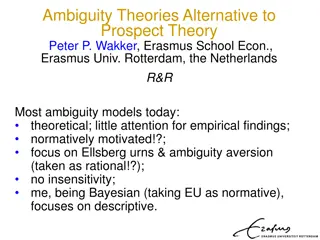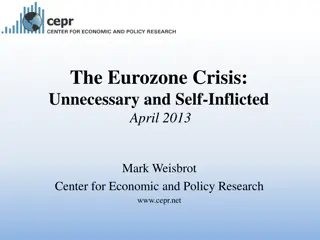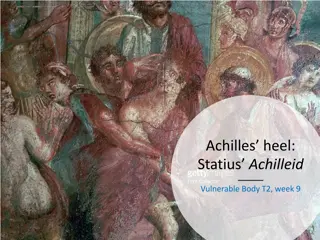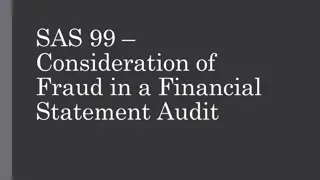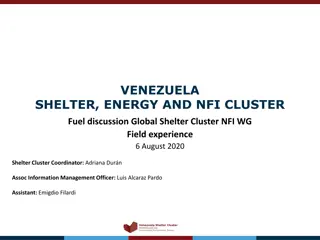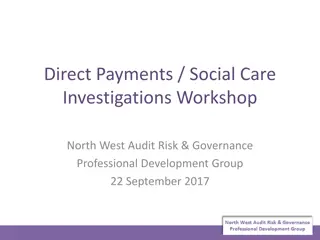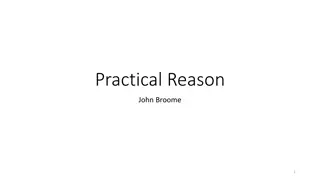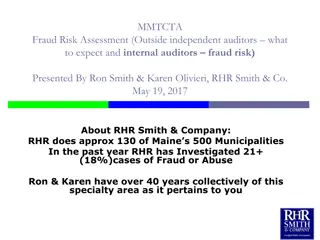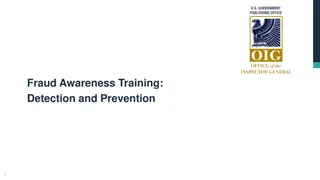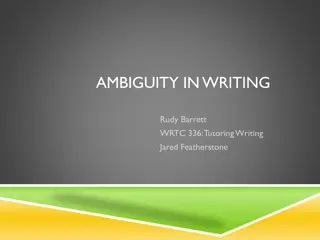Hope Amid Crisis: Normative Ambiguity, the Middle Class, and Investment Fraud in 2000s Venezuela
The study delves into the impact of Stanford Financial Group's investment scheme in Venezuela between 1986-2009, particularly on the middle-class Venezuelans. It explores how normative ambiguity affected the financial decisions of middle-class individuals, highlighting the interplay between futurity, fraud, and gaps in knowledge. The narrative unfolds through a timeline of key events in Venezuela, shedding light on the vulnerabilities created by the division between the state and middle-class citizens.
Download Presentation

Please find below an Image/Link to download the presentation.
The content on the website is provided AS IS for your information and personal use only. It may not be sold, licensed, or shared on other websites without obtaining consent from the author. Download presentation by click this link. If you encounter any issues during the download, it is possible that the publisher has removed the file from their server.
E N D
Presentation Transcript
Hope Amid Crisis: Normative Ambiguity, the Middle Class, and Investment Fraud in 2000s Venezuela by Camilo Arturo Leslie Esm Ausfeld 14/10/2023 St.Gallen This Photo by Unknown Author is licensed under CC BY
Table of Contents 1. Introduction 2. Timeline 3. Middle Class Venezuelans 4. Stanford Financial Group 5. Gray Area of Fraud in Venezuela 6. My Questions Hope Amid Crisis: Normative Ambiguity, the Middle Class, and Investment Fraud in 2000s Venezuela 2
Introduction Stanford Financial Group`s Investment scheme in Venezuela Between 1986-2009 Selling certificates of deposits (CDs) Dollar-denominated and globally diversified Ponzi scheme Onset of normative ambiguity: Late 1970s-2000s Middle class Venezuelans mostly affected Hope Amid Crisis: Normative Ambiguity, the Middle Class, and Investment Fraud in 2000s Venezuela 3
Futurity and fraud, she (Brooke Harrington) suggests, are conjoined epistemic phenomena, each predicated on gaps in knowledge. It is just such an epistemic problem specifically a loss of legal and moral clarity that this study explores through the lens of normative ambiguity. Hope Amid Crisis: Normative Ambiguity, the Middle Class, and Investment Fraud in 2000s Venezuela 4
Timeline 1958 Puntofijo Pact outsted general Marcos P rez 1970 Sugre in oil price led to abundance, strong Venezuelan Bolivar, newfound affluence 1983 Viernes Negro, devaluation of Bolivar, economic downturn, double digit inflation, Caracazo 1990s Power struggle bewteen social groups 1994 Collapse of major Venezuelan bank 2001-2008 Entry of many middle class Venezuelans to the Stanford Financial Group Hope Amid Crisis: Normative Ambiguity, the Middle Class, and Investment Fraud in 2000s Venezuela 5
How the Divison Between the Stateiddle Class Venezuelans led to Vunerability Division between the state and middle class Venezuelans Projectivity: act of considering possible futures and means of achieveing them Middle class Venezuelans of the study had common financial goals Percieved hostile environment in Venezuela due to economic factors (Inflation and devaluation of Bolivar) Led them to seek refuge in more stable assets (US dollar and fixed assests) State institutions became increasingly unreliable, influencing their financial decisions Hope Amid Crisis: Normative Ambiguity, the Middle Class, and Investment Fraud in 2000s Venezuela 6
Stanford Financial Group used Emotional and Practical aspects in the Scheme Emotional Side Enticed Venezuelans by offering vision of a more secure future Positioned as beacon of hope providing practical and emotional support to clients Unique costumer experience Operating in cities with traffic and crime problems Luxurious offices and superior costumer service Practical Side Offered high yield, dollar dominated CDs Allowed clients to escape the Bolivar and accumulate wealth in US dollars in the long-term Protected costumers via coursirs that handle paperwork Ease and security of online portal Hope Amid Crisis: Normative Ambiguity, the Middle Class, and Investment Fraud in 2000s Venezuela 7
Gray Area of Fraud in Venezuela Not a straight forward example of an illegal market Stanford Financial Group was operating in a gray area and was not the only financial instituion doing so SFG was a fraudulent firm operating in a normalised sector of the economy Legal and moral clarity declined over time Hope Amid Crisis: Normative Ambiguity, the Middle Class, and Investment Fraud in 2000s Venezuela 8
My Questions: Futurity and fraud share reliance on knowledge gaps: Is legality solely appreciated when there is a sense of future security? Does a lack of futurity lead to increased illegality? To what degree did both the justice system and the Venezuelan government fall short in safeguarding their citizens? What insights does this provide regarding the significance of trust in financial institutions? To what degree does trust underpin our financial system? Is there an inherent subjectivity in economic forecasting and investment decisions? To what extent does projectivity influence the outcome of these decision? Hope Amid Crisis: Normative Ambiguity, the Middle Class, and Investment Fraud in 2000s Venezuela 9
Thank you. Hope Amid Crisis: Normative Ambiguity, the Middle Class, and Investment Fraud in 2000s Venezuela 10
